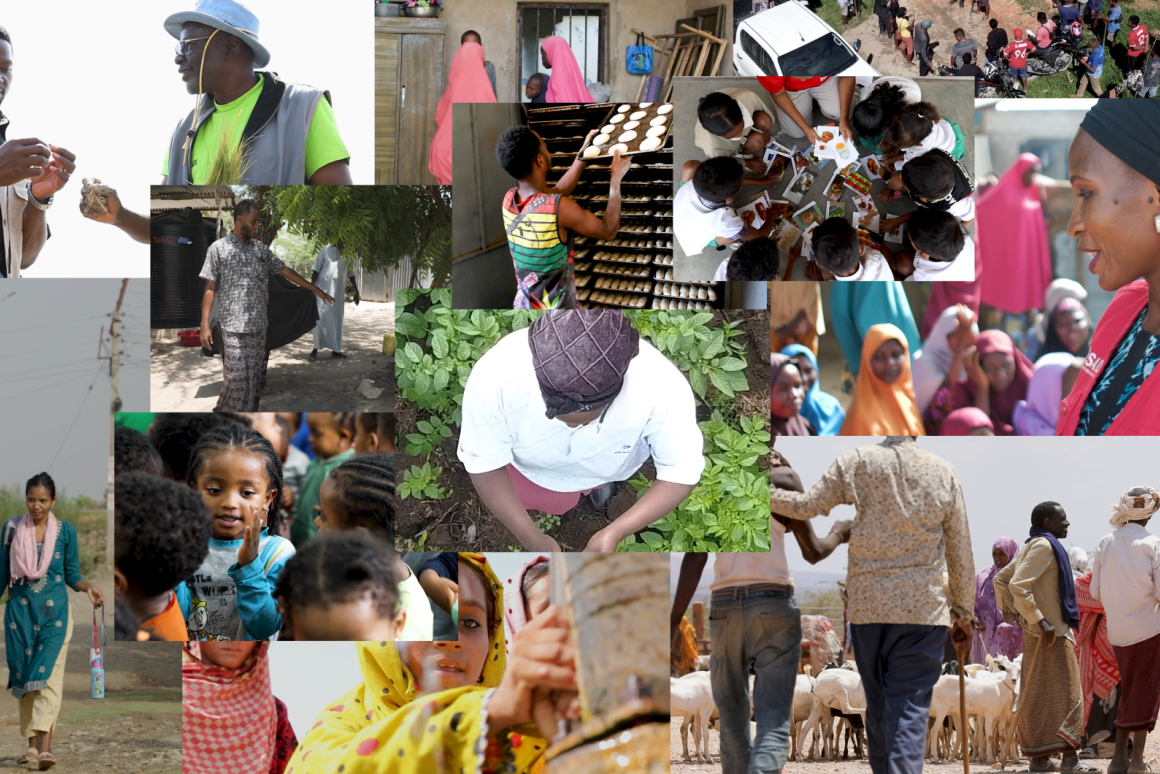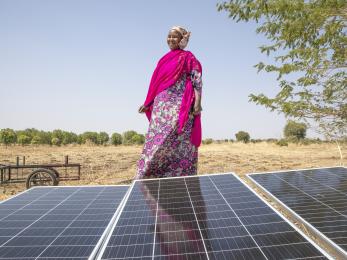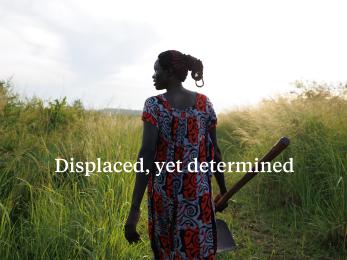Priorities for 2020
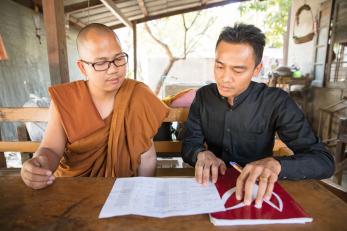
Success in 2020 starts with partnership
In a world threatened by a changing climate, increasing conflict and growing inequality, where many countries seek to close their borders to those in need, we know that we can only build a stronger future through collaboration. Working together as a global community has become increasingly challenging as the tenets of collective responsibility and international collaboration are threatened. Today’s global instability poses a risk to achieving the Sustainable Development Goals, the humanitarian community's vision for transforming the world.
That’s why, in the year ahead, Mercy Corps will be focusing on collaboration and partnership. We’ll strengthen our relationships to realise our vision for change. We will convene stakeholders — government actors, private sector players, and community representatives — to help us develop bold solutions for the challenges we face. For each of our 2020 priorities, there is an opportunity to strengthen partnerships, build greater empathy, and show the world that we are indeed stronger when we work together.
Uniting to go beyond emergency aid in fragile states:
We cannot end extreme poverty or eliminate hunger if we cannot make progress in fragile states.
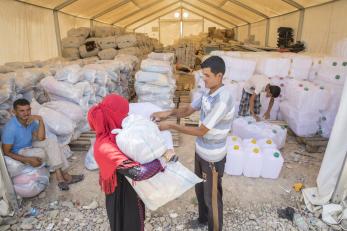
Whenever we deliver emergency aid, we look beyond the immediate needs and focus on building resilience within and across communities. Wherever possible, we work with local leaders, displaced people, and the communities that welcome them to implement long-term programmes that stabilise local markets, stimulate local employment, and address the root causes of violent conflict. We believe that’s the only way to strengthen regions suffering from complex crises. For Mercy Corps, this is a top priority. If we don’t see improvements in fragile states, we will never see progress on larger global issues like hunger, poverty, and peace.
“More than ever, our teams have to be nimble, responsive and deploy effective approaches that not only support people in fragile states for today’s urgent life-saving needs, but also consider and, wherever possible, build communities’ resilience to crises.”
— Anissa Toscano, Vice President, Humanitarian Leadership and Response
Areas of Focus:
Syria
Now in its ninth year, the conflict in Syria has created one of the most profound and devastating humanitarian crises of our time. Today, nearly 12 million people require support to meet their essential survival needs. The ongoing waves of displacement have severely eroded the resilience of people in the communities hardest hit by conflict across Syria. Last year we reached 1.5 million people inside Syria, making Mercy Corps one of the largest providers of humanitarian assistance in the region, and our teams will continue delivering emergency aid to displaced individuals with critical water, sanitation and hygiene services. We are also focused on building longer-term recovery and resilience programming in more stable parts of the country, helping people (re)start livelihoods with vocational and business skills training, access to savings groups, business grants and scholarships for internships and apprenticeships to kickstart local economies.
Democratic Republic of Congo
One of the most fragile countries in the world, the DRC is facing multiple crises simultaneously: conflict, internal displacement, an ebola outbreak, and a struggling health and sanitation system. The country is currently fighting the second deadliest ebola outbreak in history. Adding to the crisis, the epicentre of the outbreak, Beni, is home to around 110 armed groups and the recurrent violence and attacks on aid workers have caused many other NGOs to withdraw from the region. For Mercy Corps’ team members in Eastern Congo, it is “all hands on deck” as they engage in community and household outreach to prevent and control the spread of infection. In other parts of the DRC, we are continuing our critical long-term programming and we’ve started to see the impact. Over the course of the last four years, Mercy Corps has contributed to the reduction of the infant mortality rate in cities like Goma, where rates fell from 13.1% to 1.8% and in Bukavu where infant mortality fell from 18.5% to 7.4%. Our work providing a sustainable source of clean water to these two major cities resulted in reducing water-borne bacteria and diarrhea in children under five and contributed to healthier communities overall.
Yemen
As conflict rages on in Yemen, civilians continue to face the major challenges of hunger, disease, and economic collapse. Millions of people fled to rural areas seeking safety, but were left without food or income. Now, many are returning to urban areas, desperately in search of food and/or work. According to the United Nations, this is still the “worst humanitarian crisis in the world,” and an estimated 80 percent of the population — 24 million people — are in need of assistance. Mercy Corps is taking a holistic approach to relieving hunger in Yemen. Instead of creating community reliance on aid by only distributing food, we are also helping families build resilience and increase food security to withstand periods of famine. We are addressing how food is grown, strengthening the markets where goods are circulated, and improving the overall health of communities experiencing hunger. To help combat water-borne diseases like cholera, we have programmes focused on promoting good hygiene practices while improving water and sanitation infrastructures.
“I've just left our team in North-East Syria that were so gravely affected by the withdrawal of US troops and destabilisation that followed. This brave team has regrouped, recovered and is now serving the hundreds of thousands of newly displaced Syrians. This is no less daunting - but so very, very different than our Ebola programmes in the Eastern Congo where stakes are high and threats are very real. Here, access is still negotiated person to person, one village leader, one classroom and one militia at a time and almost on a daily basis. These two crises are both urgent, but very different in nature and demand a unique approach.”
— Dee Goluba, Director of Field Security
Creative partnerships for youth employment:
There are more young people than ever before in history and not enough jobs.
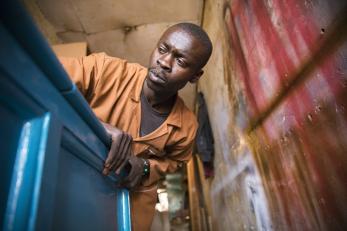
Nearly 1.8 billion young people between the ages of 10 and 24 are making their way in the world today — more than any other time in human history. The vast majority — nine out of ten — live in less developed countries where there are not enough economic, civic and social opportunities.
Our great challenge is to help communities provide the tools, training and opportunities youth need to drive and sustain development. To address this issue, Mercy Corps is building partnerships with technology companies and social enterprises to provide youth with access to the education and training necessary to find jobs. We also work to provide young people with the tools to start their own businesses and get involved in civil society, altering the trajectory of their lives and their communities.
“The creation of job opportunities for youth is vital as it allows them to make significant contributions to the economic prosperity of their countries. By tapping the energy and innovation of young talent, developing countries can create new pathways out of poverty and build resilient communities.”
— Gituku Ngene, Investment and Learning Advisor for Youth Impact Labs in Kenya
Community collaboration on climate resilience:
We can’t prevent natural disasters, but we can help communities prepare and adapt to the changing climate.
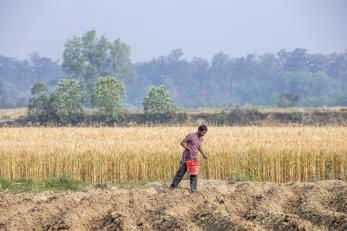
With Mercy Corps’ support, the small community of Lalitpur in Western Nepal planted sugarcane to prevent flooding from the nearby river that was destroying crops and forcing them from their homes. Today, the sugarcane provides a new, more stable source of income and has successfully stopped the flooding.
Climate-induced disasters are a direct and acute source of humanitarian crises, often threatening and sometimes reversing progress. Last year, extreme weather and natural disasters forced 18.8 million people from their homes. The struggles brought by climate change are coming fast and no one is being hit harder than the people already burdened by poverty.
As an organisation dedicated to helping vulnerable populations, reaching people on the front lines of climate change is critical. We’re providing innovative climate finance solutions and developing tools and training to help communities adapt and become more resilient to extreme weather events, floods and droughts. With partners like NASA, Mercy Corps is able to work with communities on the front lines of the crisis to reshape how people can adapt to the threats brought by a changing climate.
"Climate change is not a myth, it is happening and happening faster. Melting of ice, fire, drought, floods and other extreme weather conditions, the list goes on. It is vital for us to continue to build communities and systems capacities to better adapt and be prepared to deal with the imminent catastrophes of the impact of climate change. This massive challenge calls for strong strategic partnerships with academia, research institutions, public, private and other allies."
— Melaku Yirga, Mercy Corps Chief of Party, Rural Resilience Activity
Mercy Corps is a global team of humanitarians working on the front lines of today’s biggest crises to create a future of possibility. By partnering with local governments, forward-thinking corporations, social entrepreneurs, and the people most affected by crises, we’re able to unlock the power and innovation of a global community. By focusing our energy and resources on the areas where we will have the greatest impact, we’re making a measurable difference. To see the full list of Mercy Corps priorities, download the Mercy Corps Compass.
